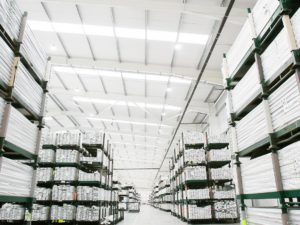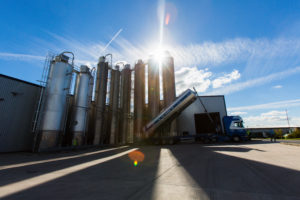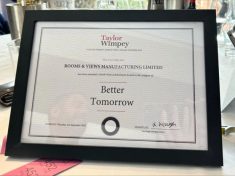
Creating a people-first culture
As Liniar breaks ground realising ambitious expansion plans, its Human Resources (HR) department continues to play an important…

The 2016 Referendum seems like a lifetime ago and just yesterday, all at the same time. Every day the media is full of warnings of a No Deal Brexit but not much detail about what that means. And as the 31st October 2019 deadline is fast approaching for the UK to leave the EU, a No Deal scenario is quickly becoming a real possibility. The big question is – what impact will this type of Brexit have on the fenestration industry? And more importantly, is your supply chain adequately prepared to handle whatever is ahead?
What is a No Deal Brexit?
A No Deal Brexit essentially sees the UK severing its ties to the EU without agreements in place to handle trade, tariffs, customs and freedom of movement.
One of the biggest areas the fenestration industry will feel the pressure is the supply of goods coming in from EU member states. Without agreements, those who’ve not planned for delays and penalties will be stuck playing catch up – and risk a myriad of customer service issues.
Trade and Tariffs
It all starts at the top of the supply chain. UK-based systems companies need to be able to buy in their raw materials and components – without delays and without high import tariffs. And systems companies based outside the UK will see similar issues when it comes to shipping finished profiles in from the EU.
As no-one really knows what will actually happen on 31st October, it makes sense to have a contingency plan in place – and as Martin Thurley, Group MD explains, Liniar is already well ahead of the curve.
“The Liniar Senior Management Team has been preparing for our eventual departure of the EU since the Referendum result in 2016.
“We import many of our raw materials from outside the UK, so recognised Brexit as a business risk early on – and since then we’ve been quietly making plans so customers face minimal disruption when Brexit finally happens.
The Customs Union
A No Deal Brexit translates into an immediate exit from the Customs Union – meaning a halt of all goods coming and going between the EU and UK. This could result in extremely long tailbacks at the borders, tunnels and ports, goods piling up and extra checks on goods before they can come into the country. The Customs Union currently allows goods to move freely through the European States – but without it, exporting to and from Europe could take significantly longer.
Preparing the supply chain
Martin tells us how his team has prepared Liniar, and its suppliers, for the future – no matter what that may look like:
“Inevitably, we had to hope for the best but prepare for the worst. From the Port Authority in Antwerp to Customs and even government officials, we’ve spoken to everyone to ensure we’re in the best possible position.
“We’ve looked at multiple sources for raw materials and bought in goods, and in most cases this includes a UK provider. Where we’ve identified new sources, we’ve run multiple and comprehensive trials to ensure the quality of our product would remain unaffected.
“Once we were satisfied our suppliers were looking in good position on our level, we worked with them to do the same with their suppliers – so that there would be no ‘bottlenecks’ of the goods required which would cause production to cease.
“For EU suppliers, we’ve worked with them to attain Authorised Economic Operator (AEO) Status. This status allows goods to be fast-tracked through the customs system, getting to their destination quicker.
Investing in customer service
Martin continues:
“Critically, we’ve invested an additional £2 million of working capital to ensure we have sufficient stocks of raw materials and finished goods to allow for initial delays at the end of October. This is a substantial investment, and one which our parent company Quanex has been happy to provide in order to ensure our service levels remain the best in the market.
“This is all in line with Liniar’s overall philosophy of ‘doing the right thing’… at the end of the day, ensuring the continuity of the supply chain affects more than just Liniar employees and their families. Our ability to deliver on time, in full, affects the families of hundreds if not thousands of workers – and being as prepared as possible is the responsible thing to do.”
“We’d also encourage everyone in the supply chain to build their own stocks of critical components as much as they can before the leave deadline – hope is not a strategy, and we’d rather be over-prepared than suffer potential disruption.”
With just a handful of weeks remaining, it won’t be long until we find out what the future of UK business looks like post-Brexit.

As Liniar breaks ground realising ambitious expansion plans, its Human Resources (HR) department continues to play an important…

September 2023 saw fabricator-installer Rooms and Views (R&V) winning a Taylor Wimpey North West Achievement Award in the…

Leading UK systems company Liniar recently announced it is breaking ground on ambitious growth plans, which include doubling…